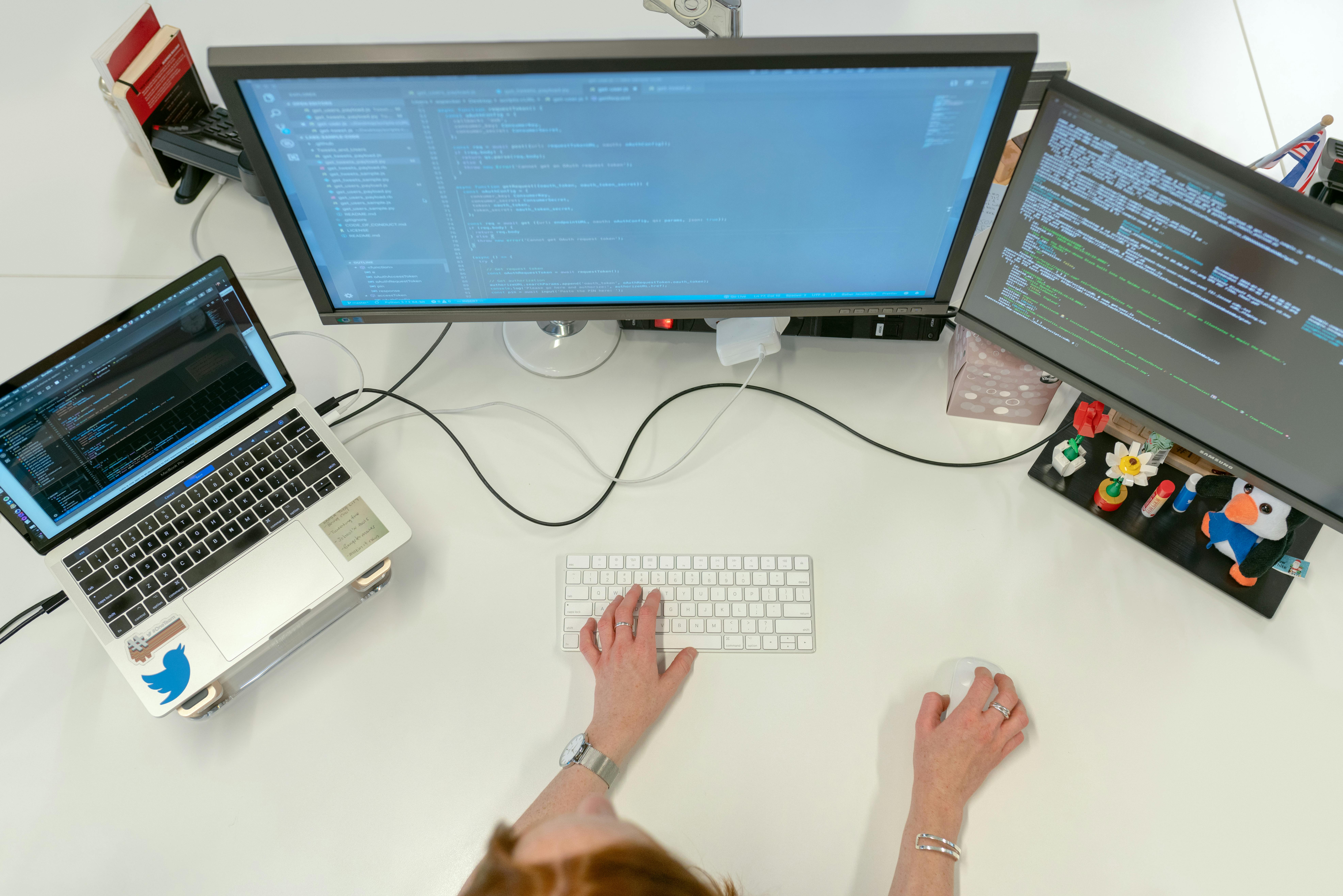The software development landscape is shifting faster than most companies can keep pace with. If you're responsible for tech strategy or hiring decisions, you're probably already feeling the pressure to stay ahead. According to Gartner's latest research, 75% of organizations will shift from piloting to operationalizing AI by 2026, fundamentally changing how we approach staffing and recruitment in tech.
Here's what makes this moment different: the trends emerging aren't just incremental improvements. They're forcing business leaders to rethink everything from their IT outsourcing strategies to how they structure their development teams.
Let's explore what's actually happening in software development—and what it means for your organization.

Artificial intelligence isn't replacing developers; it's changing what development looks like. GitHub reports that developers using AI coding assistants are completing tasks 55% faster than those who don't. The impact goes beyond speed.
Companies are restructuring their hiring priorities. Instead of expanding headcount, they're investing in consulting services that help them integrate AI tools effectively. The developers they do hire need different skills—less focus on syntax, more emphasis on system design and AI prompt engineering.
This shift is reshaping recruitment strategies. Tech consulting firms are seeing increased demand for professionals who can work alongside AI tools, not just those with traditional coding backgrounds.
The offshore outsourcing model is facing its biggest challenge in decades. Time zone differences and communication gaps cost more than companies realized. A McKinsey study found that nearshoring can reduce project delays by 40% compared to traditional offshore arrangements.
Latin America, Eastern Europe, and other nearshoring hubs are experiencing unprecedented growth. Why? They offer the cost benefits of IT outsourcing without the operational headaches. Teams can have real-time conversations, share working hours, and travel for in-person meetings when needed.
For staffing teams, this means expanding their search parameters. The talent pool isn't just local anymore, but it's not halfway across the world either.

Here's a trend that doesn't get enough attention: platform engineering teams. These specialized groups build internal developer platforms that make it easier for other developers to do their jobs.
Companies are creating dedicated roles for this. Instead of every developer figuring out infrastructure, deployment, and monitoring independently, platform teams handle it. Puppet's State of DevOps report shows that organizations with platform engineering practices deploy code 30% more frequently.
This creates new opportunities for consulting services focused on helping companies build these platforms. It also changes recruitment priorities—platform engineers command premium salaries and are increasingly hard to find.
Security can't be an afterthought anymore. The average cost of a data breach hit $4.45 million in 2024, and that number isn't going down. Development teams are integrating security from day one of every project.
This trend is transforming hiring requirements. Companies need developers who understand security principles, not just security specialists who review code at the end. Tech consulting firms are responding by offering security-integrated development services rather than security as a separate add-on.
For organizations doing IT outsourcing, security credentials and practices are becoming non-negotiable evaluation criteria.

Monolithic applications are dying. Not slowly—quickly. Composable architecture, where applications are built from interchangeable components, is taking over. This approach lets companies adapt faster, but it requires different expertise.
The impact on staffing is significant. Teams need architects who understand system integration, not just developers who can build features. Recruitment focuses on finding people who think in terms of systems and APIs rather than just applications.
These trends aren't predictions—they're already happening. Organizations that treat them as distant possibilities will find themselves scrambling to catch up. The companies succeeding right now are those treating 2026 as a checkpoint, not a destination.
Consider where your gaps are. Do you have the right consulting services supporting your AI integration? Is your recruitment strategy aligned with these shifts? Are you exploring nearshoring options before your competitors lock up the best talent?
The software development world isn't waiting for anyone. The question isn't whether these trends will affect you—it's whether you'll be ready when they do.
Ready to align your tech strategy with 2026's realities? Connect with Axented to explore how our tech consulting and staffing solutions can position your organization for success.